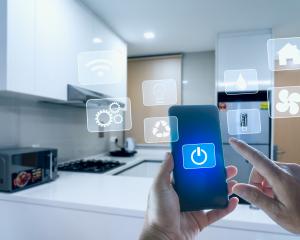
Long lines snaked down streets in London, Paris, Frankfurt and Tokyo as eager buyers vied to wield their credit cards. Screams and cheers rose from the crowd in central London as students, professionals and self-proclaimed computer geeks clutched boxes containing the slim black device.
"If I was a music fan, it would be like the launch of a Lady GaGa album in the US," said comedian Stephen Fry, known in Britain as a champion Tweeter.
Apple, based in Cupertino, California, said earlier this month that it had sold 1 million of the devices in the United States in just 28 days. The company started taking orders for the iPad abroad on May 10 after pushing back its international delivery target amid extreme demand at home.
The computer looks like a larger version of Apple's iPhone and can be used to send emails, draw pictures and play games. It is also seen as a potential saviour of the struggling newspaper industry, because it can be used as an electronic reader.
Publishers have seized upon the device as an opportunity to finally make large numbers of readers pay for online content.
In hopes of better times, Britain's Financial Times newspaper launched its iPad version at a swank press event at a hotel overlooking Lake Geneva in Switzerland, claiming the app has already been downloaded more than 100,000 times in the United States.
Rob Grimshaw, managing director of FT.com, said 20 percent of new digital subscriptions to the paper came from iPad users last week.
"I think it's going to be an extremely lucrative device for us," he said.
In Britain, prices for versions of the iPad range from £429 to £699 ($NZ912 to $1486).
But the rollout has not been without its problems. A string of suicides at a Chinese factory that churns out iPads and other high-tech items has raised concerns about conditions for workers who face tremendous time pressures and harsh discipline for mistakes.
In response, Apple issued a statement expressing commitment to ensuring that conditions "throughout our supply chain are safe and workers are treated with respect and dignity."
The bad publicity did not hurt launches in Europe and Asia. Besides Britain, the device was being unveiled in Australia, Canada, France, Germany, Italy, Japan, Spain and Switzerland.
At the Apple Store in Frankfurt, Germany, hundreds lined up - including a few who arrived as early as 3am. Some said they'd arrived so early not because they wanted to own it first - but simply to get an iPad at all.
By 8am, about 450 people squealed as Apple employees inside lowered a black curtain and began applauding. The glass doors swung open and people who had been given numbered tickets while waiting in line were let in by security to buy the device.
"I'm a bit embarrassed to be part of the masses, but the thing is, tonight it's going to be sold out," one man, who was not identified, told AP Television News.
In Tokyo, where the love of gadgetry reigns supreme and consumers have devices more sophisticated than those available in the US, about 1200 people lined up in the Ginza shopping district.
They chanted a countdown ahead of the Apple Store's 8am opening and then gushed over the tablets, saying they couldn't wait to start using them.
One Madrid store sold out its iPads in less than three hours but would not say how many had been delivered.
Araceli Sanchez in Madrid was attracted by the iPad's clean, smart appearance and some of its applications, "particularly the one that lets you see the stars and constellations in the sky wherever you are."
In Paris, at the Apple Store in the commercial gallery underneath the Louvre, Cara Garisch, 26, a software developer from South Africa, said she planned to use it to read newspapers and surf the Web.
"It's magic," she said. "Even my mom can use it."



